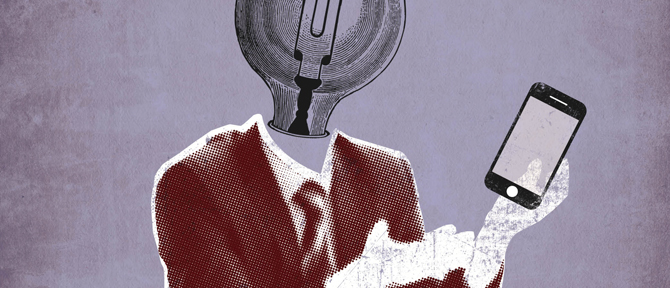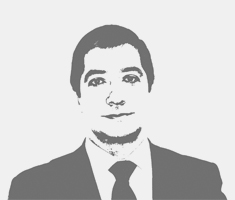#publicopinioncourt
“At first I wasn’t worried, but after I hung up, I looked out my window and went into panic. The house was surrounded by reporters, television satellite vans, camera crews and observers.” This is how Pete Townshend, guitarist of The Who, musical-arranger and composer of the band’s greatest hits, describes the morning of Jan. 11, 2003, when he found out his name was on an FBI list of British citizens accused of using child pornography. The list had been delivered to UK authorities for processing. He recounts this episode in his autobiography, Who I Am, published in 2012.
In it, he describes how the research he had conducted between 1999 and 2000 to raise awareness of an issue that was an increasing phenomenon on the Internet made him a suspect for four months. Following an analysis of his 11 computers and the articles he had written on the matter, as well as his collaborations with different NGOs to denounce this social scourge, he was proved innocent and the case was dismissed shortly thereafter. Despite that, he vividly recalls the negative impact the event had on his reputation and cause.
“It would be disingenuous of me to say that I haven’t been affected by the perception of me shown by people who do not know me or anything about me, other than what they may have read in tabloids around the time of my arrest in 2003 (…) I am still painfully aware of the repercussions this might have had on the charities I have collaborated with, where I am now obliged to maintain a low profile.”
Had that incident taken place today, the pioneering rock star of digital communication –who had launched a website in 1995 where he enabled downloads for some of his recordings, and who in 1996 financed one of the first online radio stations– would probably have had faced greater stigma yet. A name search would lead to the news, a condemnation by Internet users and the usual memes and jokes online social judgments entail.
Something has changed… or hasn’t it?
Anonymous people with greater influence than the media themselves, judges who are aware public opinion can somewhat influence judicial decisions, attorneys who understand the need to assist their clients both inside and outside the courtroom…Something has changed, and it is no coincidence that it is taking place at the same time as the confidence crisis managers, institutions and corporations are facing. It is not by chance, either, that it has coincided with the greatest increase in our ability to interconnect with others. Citizens are now more capable than ever of forming the greatest possible jury: public opinion.
Something has changed, and it is no coincidence it is taking place at the same time as the confidence crisis managers, institutions and corporations are facing
We are witnessing a profound transformation in the way the public understands and shares what is happening around them. Certain domains of public life, such as politics, have long been accustomed to this type of permanent scrutiny of their activities, but this now applies to every level of society at an enhanced level, as lack of transparency and honesty from public bodies and figures immediately translates into active rejection by a significant portion of society. It is no accident the process of change is part of a revolution, both technological and regarding access to these technologies. Countless platforms have been developed to facilitate the exchange of information, but there has also been a deep democratization in the use thereof. The ability to shape public opinion has shifted from traditional media –press, radio and TV– toward social networks, where opinions attract interest once information has already spread.
Let us take the example of Dominique Strauss-Kahn, former head of the International Monetary Fund. Undoubtedly, the charges accusing him of the alleged sexual assault of a hotel maid in New York and of procuring prostitutes would have been newsworthy since the birth of media itself. However, what ultimately led public opinion to destroy Strauss-Kahn was the generalized use of social networks to comment on any new detail of the case. Images and statements from the alleged victims went viral, encouraged by an environment of distrust in the institutions and a general feeling of dissatisfaction with the political class. The court was not the only space where Strauss-Kahn was judged.
The permanency of online information is also new. The short life span of news in the era of “analogical oblivion” that now seems so distant, when published information remained stored in newspaper libraries and perhaps in the memory of some readers, has given way to lasting data in global platforms that provide immediate and easy access to information.
What difficulties will these changes entail?
In this context of change in the formation of public opinion, some of the classical elements in the management of communication during legal disputes are being tested.
First, the time factor should be noted. The pace at which comments and opinions on a specific issue are formed has increased, which in turn, entails a decrease in the time communicators have to react in order to manage increasingly heterogeneous opinion leaders. The deadlines that characterize most judicial proceedings are much longer than the time it takes the public to form an opinion, which can be just a few hours or days after finding out about an alleged offense.
This challenge affects not only the defendants, but also the actions taken by those working in the justice sector. It may seem as if the values and principles the law is based on are not changing as fast as society. This becomes clear in the opinions formed on social networks, which do not understand some of the decisions taken at court even when they are backed by a perfect interpretation of the judicial norm.
 The second factor, as previously mentioned, has to do with the permanence of our online activity and presence. Once public opinion focuses on a person facing a lawsuit, their “digital footprint” comes out, revealing everything, from things that were once said about the person in question to unfortunate statements that they may not even remember making. Despite the progress achieved through regulations established under the concept of the “right to be forgotten,” it is extremely difficult to compensate for the effects of information that has already been published. This was recently proved by the alleged leak of the Ashley Madison user database.
The second factor, as previously mentioned, has to do with the permanence of our online activity and presence. Once public opinion focuses on a person facing a lawsuit, their “digital footprint” comes out, revealing everything, from things that were once said about the person in question to unfortunate statements that they may not even remember making. Despite the progress achieved through regulations established under the concept of the “right to be forgotten,” it is extremely difficult to compensate for the effects of information that has already been published. This was recently proved by the alleged leak of the Ashley Madison user database.
The reader may think these changes have led to greater difficulties in the professional management of personal and corporate reputation, but this is not the case. Let us analyze how this scenario also offers some opportunities.
Once we have fairly assumed that social networks have become the new forums, just like the bars and restaurants of the past, providing a place where popular opinions are shared and discussed but with the advantage of being able to measure and follow these conversations, why not take advantage of it? This is what the communications team of South African Paralympic Champion Oscar Pistorius did. In order to prepare for the athlete’s trial for the alleged murder of his girlfriend and in line with his pre-established legal strategy, they created a Twitter account with the revealing name @OscarHardTruth to try to win the battle the athlete was fighting on social networks. Thus, Pistorius could interact with new content creators and opinion leaders without intermediaries. The opportunity is clear: the digital domain enables us to manage the identity of a person or organization and its relationship with the public opinion jury directly. The power of our arguments and the credibility of our version shall be the key factors in tipping the balance in our favor.
That being said, we cannot jump to the simplistic conclusion that the challenge merely requires providing the proper information on social networks. Nor is it about understanding a citizen, who may act as any of a subject matter expert, a judge or a journalist in an online environment. Faced with a legal proceeding, the strategy should be global, taking all of the aforementioned variables into account. This also translates into new opportunities for legal counselors. A lawyer’s commitment to their clients must extend beyond the courtroom walls, not only because of the role information might play in the outcome of the case, but because a successful reputation management strategy may become the added value that differentiates successful lawyers in this new world.
Some keys to surviving in this new world
Thanks to our experience, we can offer three key elements that have consistently been success factors in achieving positive legal outcomes, at least as it pertains to protecting the reputations of the companies or individuals involved.
1. The structure changes, but content does not. Despite the profound transformation in the way in which public opinion is formed, with new styles, deadlines and devices, there are elements that remain unchanged. It is still an equation that involves content and relationships, the ability to argue and a connection between presenter and audience. There are still ways to rectify incorrect information, but through new means of contact. We still need to maintain a relationship based on mutual trust for as long as needed. The key to these efforts remains the same: build a sound story based on solid arguments, consistent and reasoned responses, while avoiding improvisations as much as possible. In order to carry out this task in a successful manner, it is critical to combine it with the next tip.
2. The best improvisation is prepared: prevention. One of the keys to winning a litigation is carefully studying all of the variables in advance, getting to know both parties, and being able to defend your arguments before a judge while anticipating risks, identifying stakeholders, developing arguments for each scenario and detecting every single potential risk. These elements are also essential requirements in winning the public opinion trial. Thus, we should not merely concern ourselves with a company’s or individual’s reputation once it is being questioned, but rather should build a solid protection structure long before that happens. The secret to building strong relationships with those who may become our allies and supporters is to allow enough time for them to test our credibility and develop trust. There are no shortcuts to building solid friendships.
3. Adaptability and quick responses. As of recently, the legal system is making efforts to streamline procedures and establish mechanisms to shorten the time required to assist citizens. But, as previously stated, it is not enough. It is a reality that “public opinion trials” are faster than legal procedures, so the timing is set by social networks, influencers and media, and we cannot lag behind. Those who manage the case cannot ignore or fail to take into account this reality; they must bear in mind the speed, immediateness and endurance of information, all factors that are shaping the current scenario. Quick and efficient responses are absolutely necessary to continue playing the tennis match public exposure in a litigation entails.
In conclusion, the challenge is to adapt to the new way public opinion is being shaped, taking into account what is happening inside the court while always remaining in line with the overall legal strategy. This is why it is so important for legal experts who defend the interests of their clients in the broadest sense, to address problem management on all its dimensions.
The challenge is to adapt to the new way public opinion is being shaped, taking into account what is happening inside the courtroom while always remaining in line with the overall legal strategy
There will always be someone who thinks like Nicholas Easter –played by John Cusack– in the movie Runaway Jury (2003), who seeks to manipulate a trial by trying to undermine the members thereof. However, experience shows the reasoning behind incorporating citizens in the jury is precisely to include a less technical perspective by taking into account the points of view of people who are part of society. The same applies to public opinion in an era in which the democratization of communication has peaked. The possibility that a few media or opinion leaders shape “public opinion” –sometimes mixed up with “published opinion”– is no longer an option. The global village has grown up and now shapes its own opinions as an adult. We must therefore treat it as such and speak the same language. It is possible that the information we receive and exchange should be not only less technical from a legal point of view than ever before, but also more humane, just like the new jury of public opinion. It is a case that also needs to be understood to be won.


